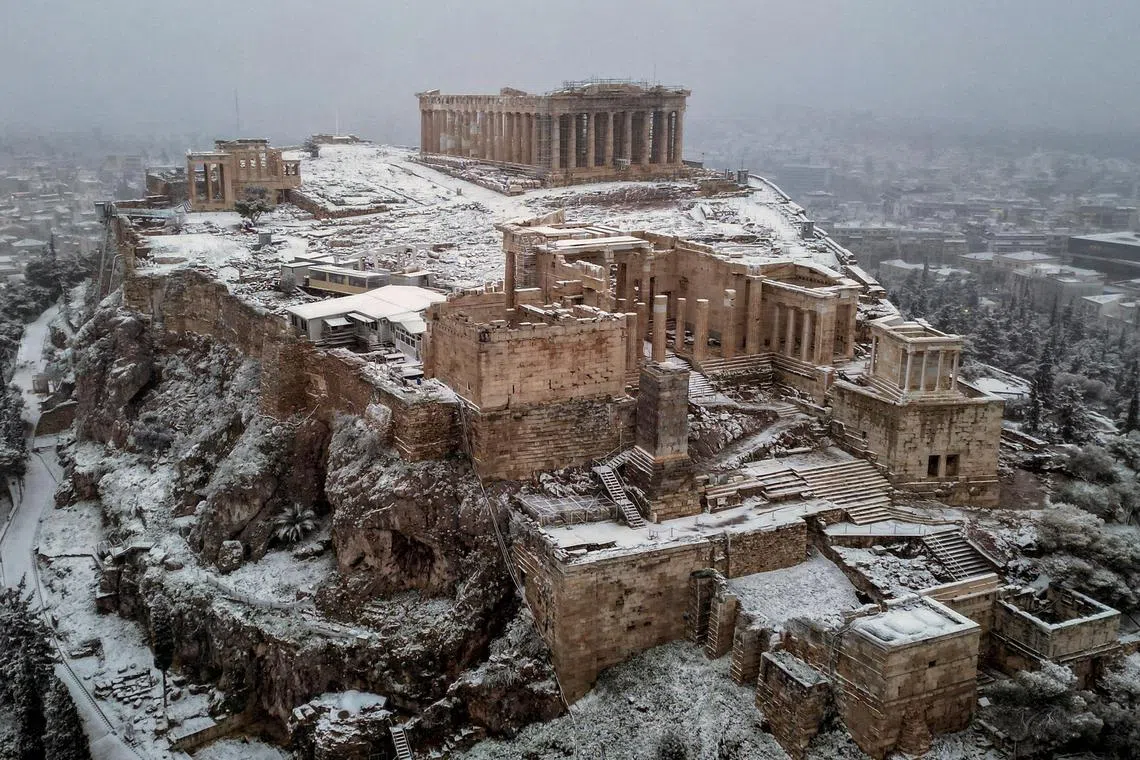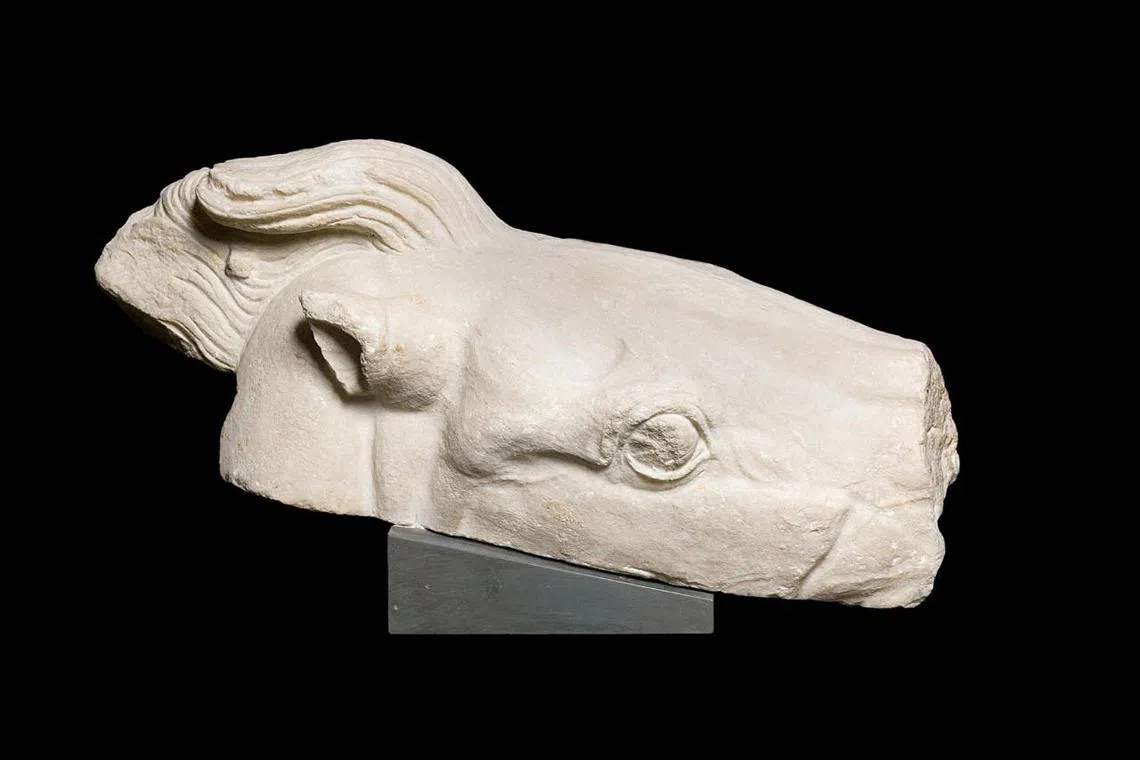Parthenon Marbles return possible without ownership accord, campaigners say
Sign up now: Get ST's newsletters delivered to your inbox

The Parthenon's decorative friezes contain some of the greatest examples of ancient Greek sculpture.
PHOTO: REUTERS
LONDON/VATICAN CITY – The return of the British Museum’s Parthenon Marbles to Greece is possible even if the two sides cannot come to an agreement over who owns the sculptures, a campaign group working to resolve the longstanding dispute said on Sunday.
Greece has asked for others to follow the example of the Vatican Museums, which agreed earlier in March to return three 2,500-year-old pieces of the Parthenon.
London and Athens are in talks over the Parthenon marble sculptures held by the British Museum.
The Parthenon, which is on the Acropolis in Athens, was completed in the fifth century BC as a temple to the goddess Athena, and its decorative friezes contain some of the greatest examples of ancient Greek sculpture.
Greece has repeatedly called for the permanent return of the sculptures, which Lord Elgin, a British diplomat, removed from the temple in the early 19th century when he was ambassador to the Ottoman Empire, Greece’s then ruler.
The Parthenon Project, which has been backed by British politicians from different parties, said the British Museum’s Parthenon collection could be returned to Greece under a long-term cultural partnership agreement.
They would be reunited with Greece’s artefacts in the Acropolis Museum in Athens, “as a complete artistic work consistent with its creators’ vision”, the campaign group said.
The plans, which have been discussed with Greek Prime Minister Kyriakos Mitsotakis and British Museum chair George Osborne, would see a rotation of Greek masterpieces offered to the British Museum, including some that have never been seen outside Greece.
The Parthenon Project said the agreement would be predicated on “the acceptance by both sides that this transformative cultural partnership is possible, despite the absence of a shared position on ownership of the Parthenon collection”.
That would mean the arrangement sidesteps the requirement for a change in the law to allow the British Museum to dispose of its artefacts.
Mr Osborne has played down the prospect of a permanent return of the marbles, citing the potential legal hurdles, and instead suggested an arrangement where the marbles can be seen in both London and Athens.
The Vatican Museums gave Greece three 2,500-year-old pieces of the Parthenon on Tuesday, and the Greek side said the gesture should be “imitated by others”.
The fragments have been in the papal collections of the Vatican Museums for more than a century, and Pope Francis ordered their return last December.

A 438BC to 432BC head of a bearded personage (left) and a 438BC to 432BC head of a young man.
PHOTOS: AFP
The Pope has donated them to Archbishop Ieronymos II, the head of the Greek Orthodox Church, as a gesture of ecumenical dialogue with the Roman Catholic Church.
The archbishop’s representative at Tuesday’s signing ceremony at the Vatican Museums, the Reverend Papamikroulis Emmanouil, called the Pope’s gesture “historic”.
Rev Emmanouil said there was “much left to do to heal the wounds and traumas suffered by this monument (the Parthenon) because of practices that belong to a distant past”.
“The hope is... that this gesture by the Holy Father will be imitated by others. His Holiness the Pope of Rome has proven that this is possible and realistic,” he said.
According to the Vatican Museums website, one piece being returned to Greece is the head of the horse pulling Athena’s chariot on the west side of the building. The others are the head of a boy and the head of a bearded man.

According to the Vatican Museums website, one piece being returned to Greece is the head of the horse pulling Athena’s chariot on the west side of the building.
PHOTO: EPA-EFE
In his address at the signing ceremony, the governor of Vatican City, Cardinal Fernando Vergez, said the three pieces were acquired by the papacy “correctly” at the start of the 19th century. He did not elaborate.
With the donation to Greece, the Vatican Museums no longer holds any parts of the Parthenon.
REUTERS


